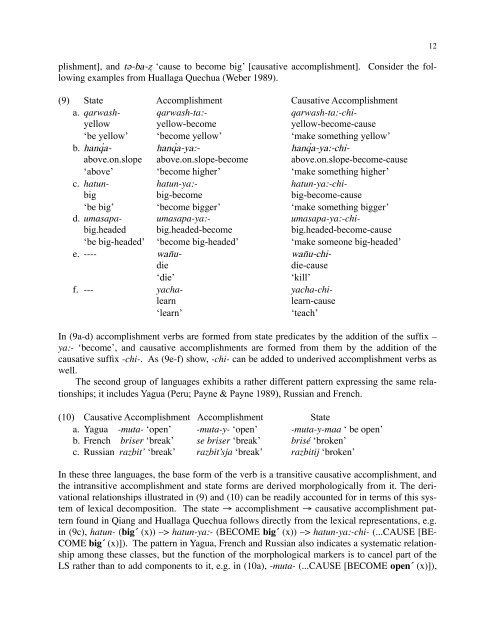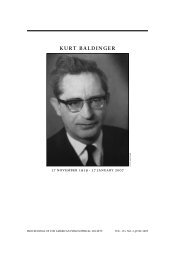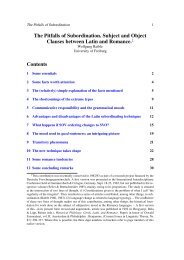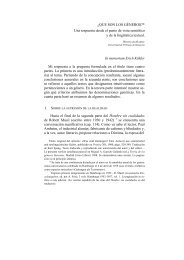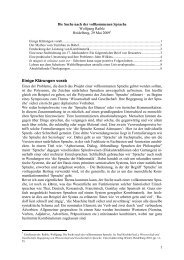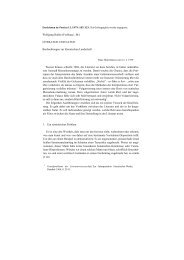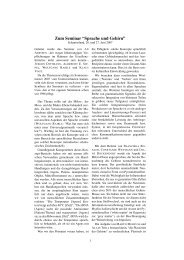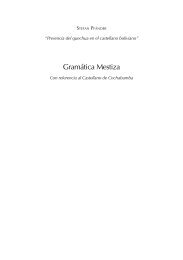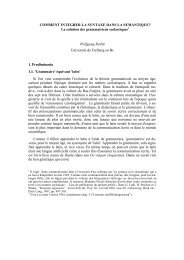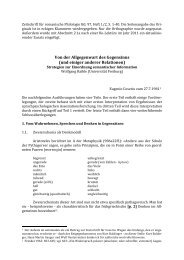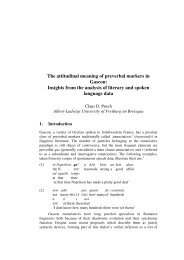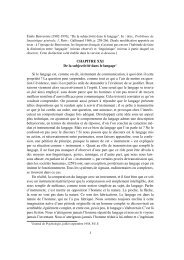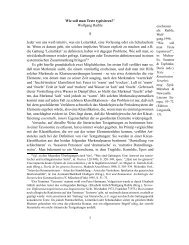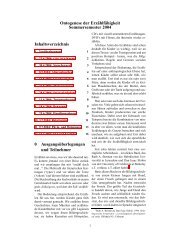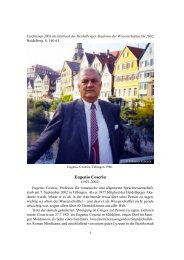A Summary of Role and Reference Grammar
A Summary of Role and Reference Grammar
A Summary of Role and Reference Grammar
You also want an ePaper? Increase the reach of your titles
YUMPU automatically turns print PDFs into web optimized ePapers that Google loves.
plishment], <strong>and</strong> të-ba-º ‘cause to become big’ [causative accomplishment]. Consider the following<br />
examples from Huallaga Quechua (Weber 1989).<br />
(9) State Accomplishment Causative Accomplishment<br />
a. qarwash- qarwash-ta:- qarwash-ta:-chiyellow<br />
yellow-become yellow-become-cause<br />
‘be yellow’ ‘become yellow’ ‘make something yellow’<br />
b. hanqfla- hanqfla-ya:- hanqfla-ya:-chiabove.on.slope<br />
above.on.slope-become above.on.slope-become-cause<br />
‘above’ ‘become higher’ ‘make something higher’<br />
c. hatun- hatun-ya:- hatun-ya:-chibig<br />
big-become big-become-cause<br />
‘be big’ ‘become bigger’ ‘make something bigger’<br />
d. umasapa- umasapa-ya:- umasapa-ya:-chibig.headed<br />
big.headed-become big.headed-become-cause<br />
‘be big-headed’ ‘become big-headed’ ‘make someone big-headed’<br />
e. ---- wanÌu- wanÌu-chidie<br />
die-cause<br />
‘die’ ‘kill’<br />
f. --- yacha- yacha-chilearn<br />
learn-cause<br />
‘learn’ ‘teach’<br />
In (9a-d) accomplishment verbs are formed from state predicates by the addition <strong>of</strong> the suffix –<br />
ya:- ‘become’, <strong>and</strong> causative accomplishments are formed from them by the addition <strong>of</strong> the<br />
causative suffix -chi-. As (9e-f) show, -chi- can be added to underived accomplishment verbs as<br />
well.<br />
The second group <strong>of</strong> languages exhibits a rather different pattern expressing the same relationships;<br />
it includes Yagua (Peru; Payne & Payne 1989), Russian <strong>and</strong> French.<br />
(10) Causative Accomplishment Accomplishment State<br />
a. Yagua -muta- ‘open’ -muta-y- ‘open’ -muta-y-maa ‘ be open’<br />
b. French briser ‘break’ se briser ‘break’ brisé ‘broken’<br />
c. Russian razbit’ ‘break’ razbit’sja ‘break’ razbitij ‘broken’<br />
In these three languages, the base form <strong>of</strong> the verb is a transitive causative accomplishment, <strong>and</strong><br />
the intransitive accomplishment <strong>and</strong> state forms are derived morphologically from it. The derivational<br />
relationships illustrated in (9) <strong>and</strong> (10) can be readily accounted for in terms <strong>of</strong> this system<br />
<strong>of</strong> lexical decomposition. The state → accomplishment → causative accomplishment pattern<br />
found in Qiang <strong>and</strong> Huallaga Quechua follows directly from the lexical representations, e.g.<br />
in (9c), hatun- (big´ (x)) –> hatun-ya:- (BECOME big´ (x)) –> hatun-ya:-chi- (...CAUSE [BE-<br />
COME big´ (x)]). The pattern in Yagua, French <strong>and</strong> Russian also indicates a systematic relationship<br />
among these classes, but the function <strong>of</strong> the morphological markers is to cancel part <strong>of</strong> the<br />
LS rather than to add components to it, e.g. in (10a), -muta- (...CAUSE [BECOME open´ (x)]),<br />
12


